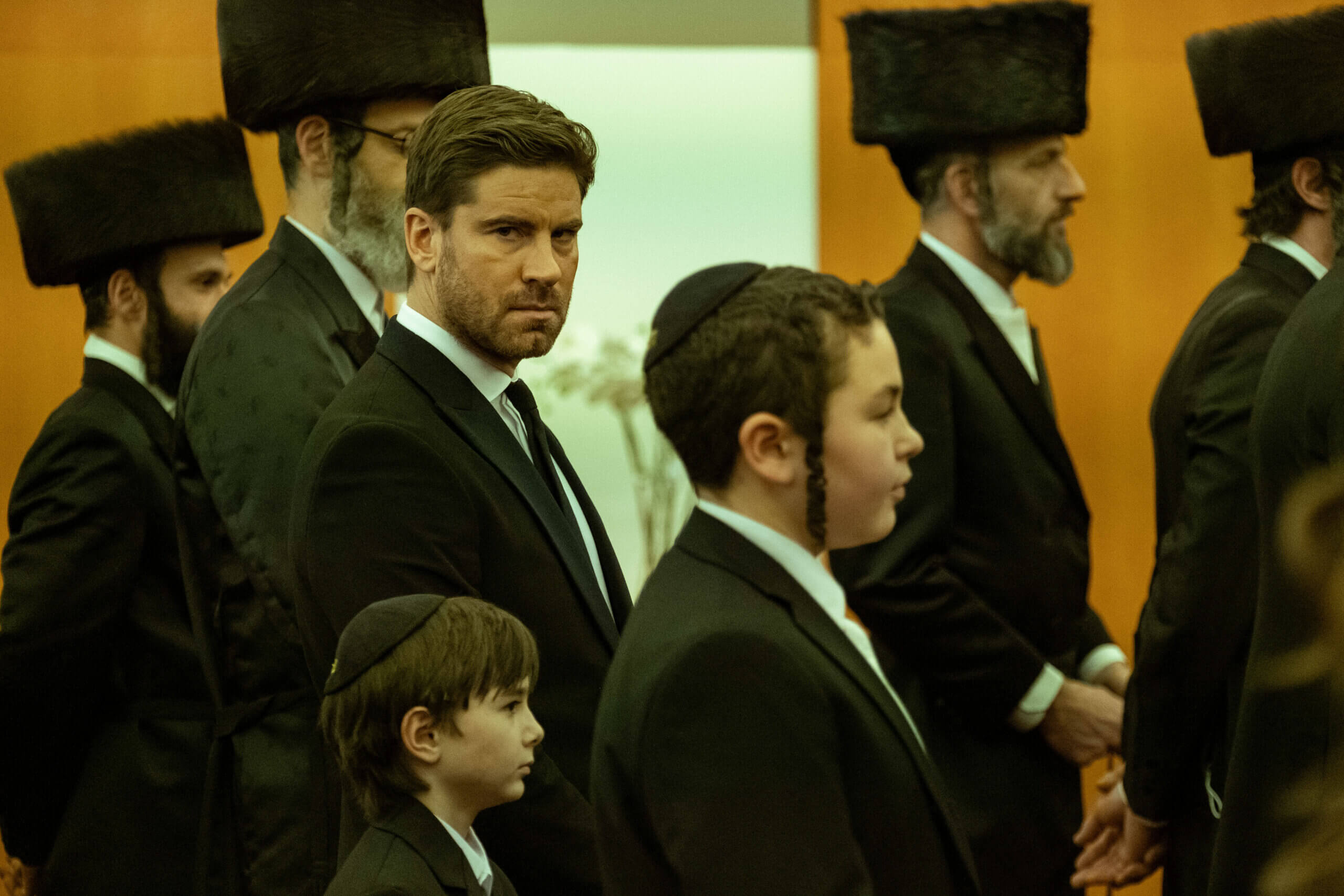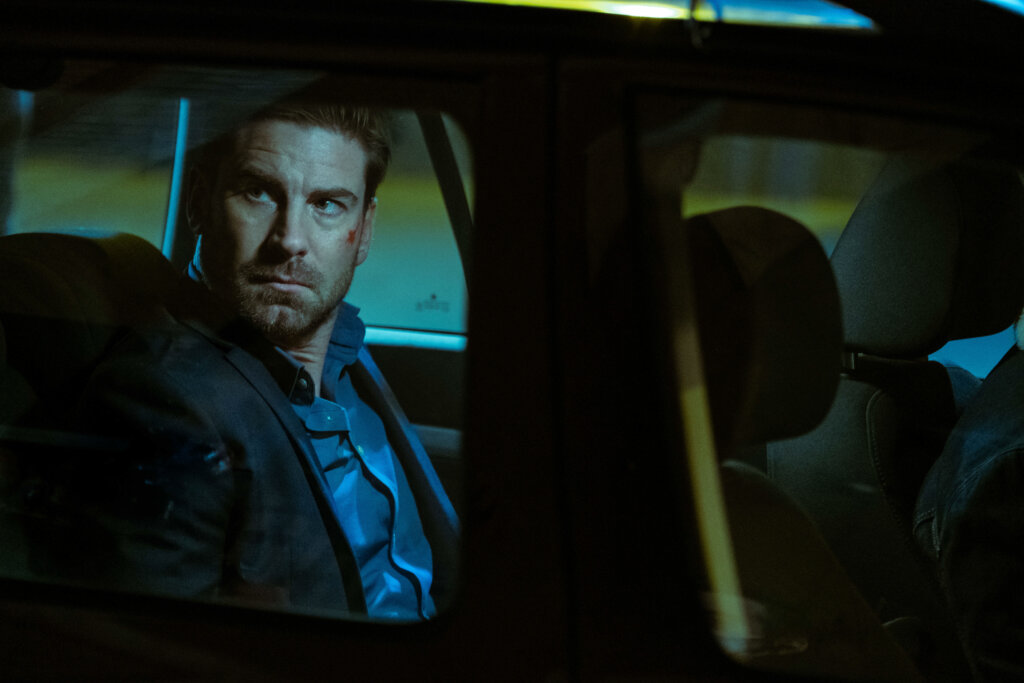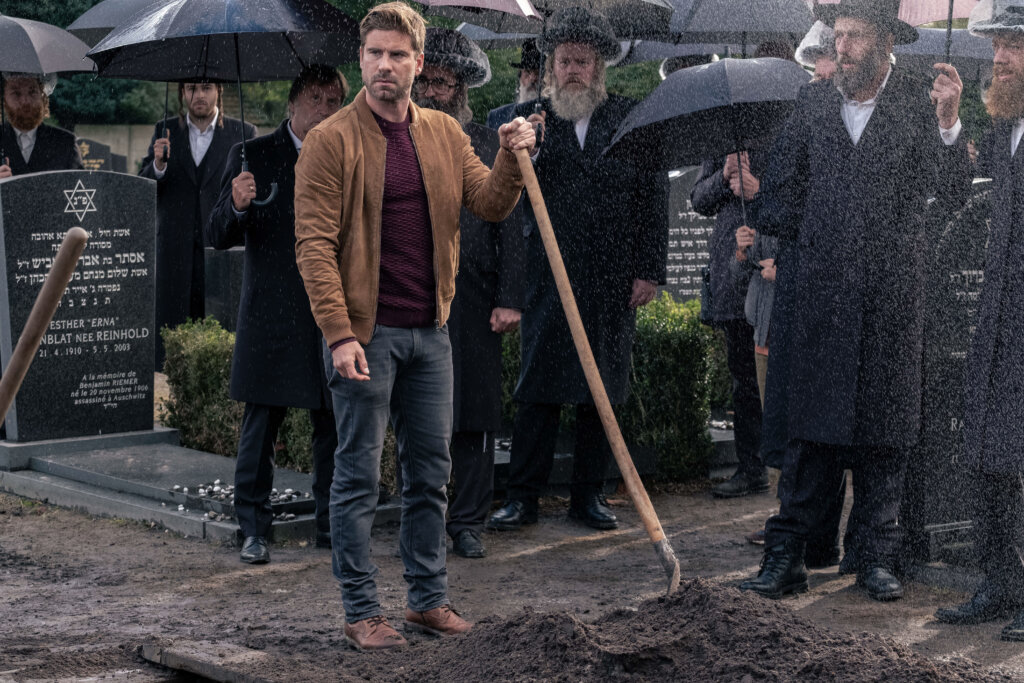There’s yet another Netflix show about Orthodox Jews — but this one is full of thrills
‘Rough Diamonds’ features every antisemitic stereotype in the book, yet gives a nuanced portrayal of Haredi life

Graphic by Angelie Zaslavsky
You wouldn’t think that a show about corrupt, money-laundering Haredi diamond dealers would be good for the Jews. And yet Rough Diamonds, a new Netflix show set in the Antwerp diamond district, delivers one of the most nuanced and positive portrayals of Haredi life yet.
We’ve grown used to the explosion of shows about Haredi life in recent years, and the subsequent fascination with Orthodoxy has led to a multitude of podcasts and op-eds on the community. Perhaps it even contributed to the splash that The New York Times made with its investigation of Hasidic yeshivas last year.
Much of the media about Haredi life has focused on details viewers are likely to find odd or prurient — married women’s wigs; couples sleeping in separate beds; the shidduch process.
Rough Diamonds, created by Rotem Shamir and Yuval Yefet who worked together on the Israeli thriller Fauda, feels far more like Uncut Gems than Unorthodox. It’s full of backroom dealings with the Albanian mob and people punching each other in the face.
But it’s also full of Haredi life. The show, which is mostly in Flemish and Yiddish, is set in Antwerp’s diamond bourse, which is the biggest diamond trading business in the world. Two of the most important diamantaires, as the diamond trading businesses are known, were founded by Hasidic families, and business in the district was historically conducted in Yiddish and closed on Shabbat.
Listen to That Jewish News Show, a smart and thoughtful look at the week in Jewish news from the journalists at the Forward, now available on Apple and Spotify:
Rough Diamonds follows the multiple generations of the Wolfson family, who run an old and respected diamond business that has fallen on hard times as modernity and globalization have changed the trade. Some of the outlines of the show even come from the real life intrigue: An investigator is trying to crack down on the community for its financial maneuvering, which actually happened in 2012. (The investigator is one of the few characters who seems antisemitic; she is a bit too hungry to crack down on the diamond “cabal.”)

But the series also delves into the family’s internal tensions. One of the brothers, Noah, left the Hasidic world and broke ties with his family. But he returns for a funeral, with his young son, and finds the family business on the verge of collapse, quickly becoming embroiled once again in his family’s world.
Shows about Haredi life tend to focus on someone who doesn’t quite fit into the community or seeks to break out, painting the Haredi world as unbearably repressive. But Noah doesn’t quite follow the template. While he starts out prickly and guarded, snapping at anything that reminds him of his old life, he soon loosens up and joins the family’s prayers at a shiva. His son — though not Jewish by Orthodox standards, thanks to his gentile mother — is drawn to the newfound customs, excitedly putting on a kippah and learning the Shabbat blessings. (Whether a Haredi family would embrace a grandson with a non-Jewish mother as a Jew seems perhaps unlikely, but it makes for a nice storyline.)

The main beats of the plot are attached to the diamond business and its drama, but all with the Haredi world as its backdrop. There are discussions of Jewish burial rules, weddings, kosher internet and synagogue drama, all of which are part and parcel of the politics of the diamond trade. There’s even a plotline in which the family uses a chevra kadisha van to smuggle illegal goods across the border to London.
Yet as essential as Jewishness is to the plot, it also feels like an afterthought — in a good way. The focus is not the exoticism of Orthodox life, but the intrigue of diamonds and mafia deals. Judaism doesn’t feel connected to the characters’ rapacity and corruption. The characters’ flaws are the same as in any thriller, their concerns and machinations the same as in any big family business. (Succession, anyone?) Jewishness, if anything, is the force that recalls the characters to good, with its emphasis on community and mitzvot.
Rough Diamonds has its flaws; drawing a thriller out across an entire TV season leads to some overly convoluted storylines and gratuitous fighting, plus some of the romance seems a little contrived. But its portrayal of Jewishness is more detailed, nuanced and human than many of the previous shows that set out to focus exclusively on Haredi life. Is it accurate? Probably not — I doubt there are quite that many fistfights in Antwerp’s cholent shops.

















